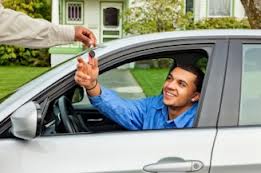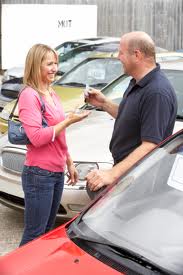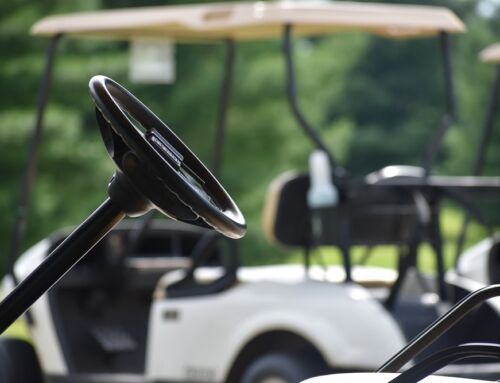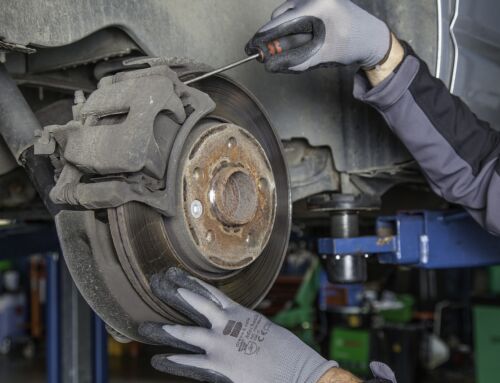Am I Responsible for the Accident Caused by the Friend/Family who Borrowed my Car?
William Bill Hurst -Your Indiana Lawyer

Step 1- Who Was Responsible For the Crash?
The first step is to decide which driver(s) actually caused (or contributed) to the accident. Deciding who is “liable”- legally responsible for the damages- typically revolves around the unique circumstances of the accident and the “negligence” of each driver. A driver is considered “negligent” if, under the circumstances, a reasonable person would know that their conduct and/or actions allowed the possibility of injury to exist. 3A Ind. Law Encyc. Automobiles and Motor Vehicles § 172. Usually those drivers found negligent will be “at fault”- the legal cause of the accident. It should be noted that if both drivers are found negligent, what comes into play is called “contributory negligence.” Contributory negligence varies from state to state, but the general idea is that liability for damages will be divided based upon the percentage that each person is at fault. For example: A speeding truck hits a car making a left turn at a stop light, the jury may find the truck driver is 75% liable because he was speeding while the car driver is 25% liable for not looking before he turned. Indiana is a “modified comparative fault” state which has a “51% rule;” according to the Indiana statute, IC 34-51-2, an injured party can only recover if it is determined that his or her fault does not reach 51%. If the injured party was 50% or less at fault, he or she may still recover damages. Continuing the example from above, if the car driver sues the truck driver, but the jury finds that the car driver was 55% at fault, the car driver can recover nothing.
It must be noted that you, as the car owner, usually will not be held liable for a driver’s actions when you did not specifically give your permission to that person to use the car (including theft). Also, it must be the negligence of the person to whom you loaned the car that caused the injuries, not a third party who was either given the keys by the permitted driver or stole the keys. In any of those cases it is unlikely that you, the car owner, will be found liable.
If the person you lent your car to was not the driver at car owner, you will likely not be responsible for the damage. If, on the other hand, the friend or family you loaned the car to was responsible, even partly, you would need to move on to step two.
Step 2- If the Driver I Lent My Car To is Found to Be Liable Due to Negligence, Can I Be Held Responsible?
Generally the answer to this question is no but, as with many things involving the American Legal system, there are always exceptions. If you scan (or surf) your daily news source, you may come upon news articles talking about just such an exception. If you think you fall within any of these exceptions, you may be liable and it becomes important to learn whether and to what extent your insurance (or the drivers insurance) will cover the damage. You would thus need to move on to step three.
Letting a Known Unfit Driver Drive Your Car (“Negligent Entrustment”)
In Mason Michigan, a man was charged with several felonies for loaning his car to a drunken teenager who died along with two others in a high speed crash. In that case, authorities said the car owner knew or should have known the driver was drunk and never should have let her drive the car. “Furnishing a car to a minor obviously under the influence is sufficient for a reasonable person to anticipate death…” The Michigan Daily News, September 5, 1991. As is stated in the snippet of news article above, the owner of a car can be found liable if he or she had specific reason to know that the borrower of the car may drive negligently. The concept is known as “negligent entrustment” and includes having personal knowledge that the driver is: intoxicated, unlicensed or underage, inexperienced (e.g. only has a drivers permit), suffering from an illness that could affect driving (e.g. sleeping sickness), or that the person has a history of reckless driving. For negligent entrustment to attach, the person bringing the lawsuit against you must prove that you, as the car owner, knew or should have known that the driver was incompetent at the time the permission was given.
Employee Liability (“Respondeat Superior”)
The law typically holds employers responsible for the wrongful acts of their employees while the employee is performing within the scope of his or her employment. For example, a truck driver is an employee of a trucking company and he is delivering a load when he negligently strikes a vehicle, killing the occupants. The truck company will be liable. The concept is known as “respondeat superior.” Employer responsibility includes negligent driving. There are grey areas for what “within the scope of employment” means; courts in Indiana have found that “an employee’s conduct is within the scope of the employment when he or she is acting, at least in part, to 
When Your Children Drive the Family Car- State Specific
In many states, parents are held liable for their children’s negligent driving. Indiana has several unique statutes on the books in regard to children operating motor vehicles. First, Indiana Code 9-24-9 applies to children under eighteen years old who apply for a drivers permit or license. The statute requires a parent or guardian who signs an application for a permit or license to assume responsibility, along with the minor, for “any injury or damage that the minor applicant causes by reason of the operation of a motor vehicle if the minor applicant is liable in damages.” For example, a teen’s mother signs for his license. Before he turns eighteen, the teen negligently operates his vehicle causing injury. His parents may be fully responsible for the damages. The underlying goal of the statute “is to provide a source of financial responsibility where underage drivers are the cause of an accident.” Cedars ex rel. Cedars v. Waldon, 706 N.E.2d 219, 225 (Ind. Ct. App. 1999). Another statute, The Indiana Financial Liability Act, Ind. Code Ann. § 34-31-4-1, says: “a parent is liable for not more than five thousand dollars ($5,000) in… damages arising from harm to a person or damage to property knowingly, intentionally, or recklessly caused by the parent’s child if: (1) the parent has custody of the child; and (2) the child is living with the parent.” In essence this statute is a cap on liability to a child’s parents set at $5,000 for conduct that is something more than just mere negligence. For example, a minor child vandalizes a home causing damages of $7,000 or more. The parents are only liable for up to $5,000.
Step 3- If I Am Held Responsible Will Insurance Cover the Damage?
Assuming you have insurance, most situations will be covered at least to the extent that you have purchased coverage. If either the car being driven or the driver of the car has insurance, an accident will be covered. Insurance typically follows the car, so long as permission was given to drive the car the accident is often covered. If the car has no insurance, but the driver does, the drivers insurance will usually cover the expenses. But, as with all things, laws and insurance policies vary both by provider and from State to State. Coverage depends on, amongst other things: the terms of your insurance policy, the severity and circumstances of the accident, the driver’s relation to you, where the driver lives, and the specific laws of the state you are in. In the United States, some coverages are mandatory, others are optional. It is important to know each applicable car insurance policy and also their limitations. A few of the more well know and popular types of insurance are liability, comprehensive and collision.
All 50 states require at least some level of liability insurance which covers other people’s bodily injuries or death for which you are responsible. Liability coverage is what allows a driver to drive a friend’s car and still be covered under their own auto insurance policy.
Comprehensive and collision insurance are specifically linked to the car, not the person. This type of insurance is optional, so it is important to check and see if the vehicle has it. Typically these types of plans have several conditions in place, such as who is listed as a permitted driver or limits for unlisted drivers. Thus it is especially important to see what exactly is covered. The easiest way to do so is to call your insurance provider and ask.
Step 4- Seek the Help of a Professional
If you or a loved one in your family was involved in an auto accident, and you would like help navigating the often complex laws governing car accident liability, please contact William “Bill” Hurst for a free evaluation of your case at 1-800-636-0808. Bill Hurst is an attorney with over 35 years of experience in representing victims suffering various kinds of accidental injury. Also see our spanish website at www.indianapolisabogado.com
Related Articles:
-
Teen Drivers
-
Been In An Accident? Why Insurance Companies Don’t Want You To Hire A Lawyer
-
What To Do After A Car Accident In Indiana





